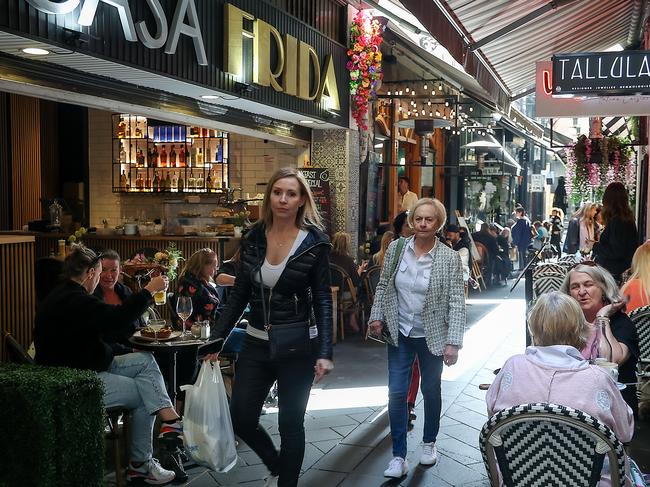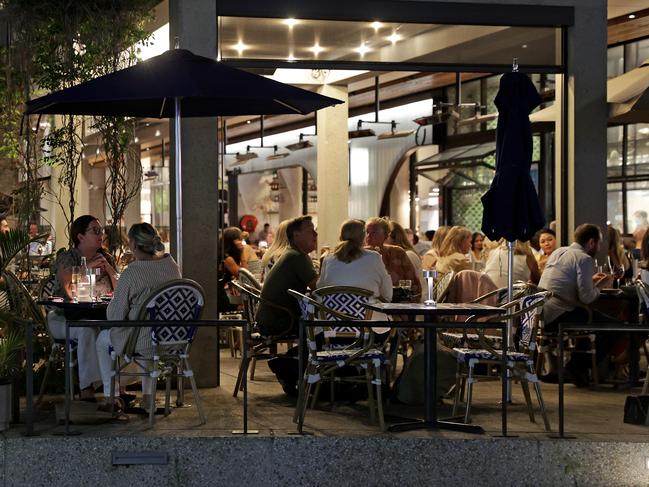‘There lies the problem’: Cafes, restaurants failing at fastest rate on record
Hospitality businesses across the nation are failing at the fastest rate on record, new data has shown, in a grim reflection of the state of the embattled sector.

Cafes and restaurants across Australia failed at the fastest rate on record last financial year, new data has shown – a bleak reflection of the state of the embattled sector.
As consumers pull back from discretionary purchases, the daily costs of running an eatery, including those associated with food and energy, have soared, as have interest rates, pushing popular businesses to the brink.
According to the Australian Securities & Investments Commission (ASIC), cafes, restaurants and small retailers registered disproportionate growth in insolvency appointments in the 12 months to June 30 this year.
The number of food services collapses skyrocketed by 50 per cent to a record 1667, compared to a previous high of 1114 in the 2023 financial year.
At the same time, retail trade insolvency appointments increased by 42.2 per cent to 768.
Restaurant and Catering Australia CEO Suresh Manickman said it was one of the toughest periods the sector has ever faced.
“Higher interest rates, cost of living pressures on the up, more expensive produce and the cost of energy are all having an impact,” Mr Manickman told The Australian.

“Compared to this time last year, people have less money in their pockets and a reduced ability to pay and go out, and there lies the problem the sector is facing.”
The Australian Bureau of Statistics (ABS) recently revealed monthly household spending in hotels, cafes and restaurants has declined 13 per cent since the end of 2023, slightly outpacing the broader fall in spending.
Earlier this month, credit reporting company CreditorWatch forecast 9.1 per cent of businesses in the industry will go broke within the next year, amid warnings the Reserve Bank could be forced to keep interest rates higher for longer to bring inflation under control.
“Businesses have to endure high interest rates long after consumer demand has plummeted, and discretionary spending has significantly weakened,” CreditorWatch chief economist, Anneke Thompson, told The Sydney Morning Herald, calling the situation a “perfect storm”.

Independent Food Distributors Australia chief executive Richard Forbes also warned customers can expect to pay significantly more for food and beverages if action isn’t taken to address rising business costs.
Distributors have experienced a 30 per cent increase in the cost of food over the last three years, he told news.com.au, which is then reflected in what consumers are charged. Rent, insurance, petrol and energy bills are also on the up.
“Our average members are facing energy bills of $25,000 per month – not per annum, per month,” Mr Forbes said.
“All of those costs have to be absorbed. And at the end of the day, when you have rising energy costs, insurance, rents, fuel and labour costs in the beginning of the supply chain down to the end of it, then the people that end up paying more for their coffees, their pieces of carrot cake, their meal at a restaurant, their parmigiana at a pub, are the consumers.”

Mr Forbes stressed cafes should not be blamed for upping their prices, as businesses are simply trying to survive in an “operating environment that is unviable”.
“They are not increasing prices because they want to make more money,” he said.
“They are only raising the prices of their products to survive, it is as simple as that. And if we don’t see the sort of relief that we need, then the prices of your everyday out-of-home products is just going to continue to rise.”
Mr Forbes said governments at the state and federal level need to take urgent action to improve the operating environment for businesses.
“(The government) acknowledges that small businesses, which make up 97 per cent of all businesses, are the engine room of our economy, so the government needs to follow that up with action. We need cheaper energy, and we need it now.”
In The Australian today, Mr Manickam also called on the government to invest in apprentices and trainees to ensure the industry has access to qualified staff.



